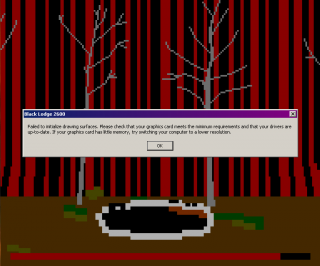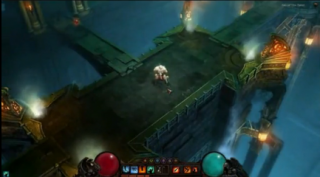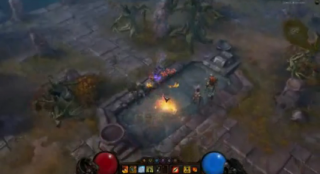A Quest Requiring Patience
By ahoodedfigure 1 Comments
Last time I was a bit dumb and saved AFTER I'd taken a quest for the temple of Julianos in my adoptive home of Satakalaam. The quest was to find a church official who was investigating a self-designated prophet who spoke of the lies of the temple. Kinda cool. So I go to the expert, she tells me about a former lover of the self-styled prophet. I got to the lover, he tells me the questy equivalent of fuck off, so I go into the dungeon that the prophet had received her revelation from, find a woman in the dungeon who tells me to talk to the lover (I DID!!). So I go back to the guy, and he refuses to talk to me.
Here I am thinking the quest is busted, and I have every right to think that sort of thing given the game's reputation. But I check the Unofficial Elder Scrolls' Pages and find that the quest is actually kind of complicated... probably one of the more intricate quests I've seen in my gaming days.
If you have a decent reputation with the lover guy's faction, this one I think is with the Thieves' Guild, then he instantly gives you a clue to what you need to do next. But if you don't, and I don't, then you have to basically give up and wander around doing other stuff, sometimes for up to 20 days, before you get news from the lover about someone being murdered within the church hierarchy. You go to the person who replaces the victim, and the quest continues that way.
In other words, at some point, without any hints that the game would allow this, I'm expected to give up, and only THEN will I get anywhere. All the effort I put into the game will not yield results!
In principle I really like this idea, but because the game never gives me a hint that such things are possible within the game's own internal language, I'm left wondering if the game is busted or I'm missing something. So many quests seem designed specifically to force us to micromanage and hit on every clue like a to-do list. Real life investigations often lead to dead-ends or unexpected revelations, and one sort of has to make up the to-do list as they go. I wonder if there's some way to do this right, to let the player know that sometimes things will resolve with a little patience. Is that even possible with the current game design structures? I almost feel as though games are usually made with us as rats in a maze, looking for cheese or ringing a bell for a food pellet. To regard a quest as more than that, pretending these characters are real people, seems to throw a wrench into this pretty simplistic model.
Anyone else find some strangely intricate quest, whether or not it was successfully executed? What about one that required the user to be patient, or even go do something else for a little while before a portion resolved?
Update: The quest must have expired, because it was gone from my log and the maze I spent an hour combing was empty of questy bits. Bleah!





Log in to comment